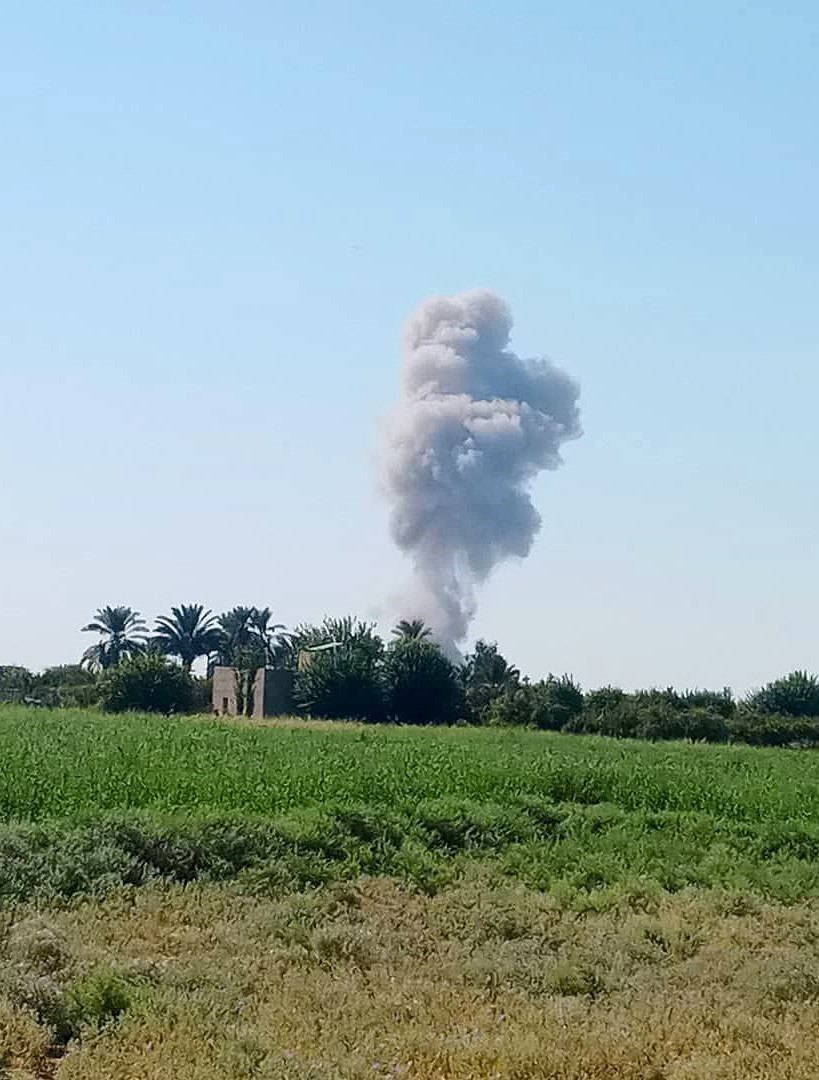A drone strike recently targeted a truck at the Syria-Iraq border, raising concerns among local communities. It remains uncertain whether the strike was conducted by Israeli or American forces.
Drone Strike Targets Truck at Syria-Iraq Border: Identity of Attacker Unclear


Perspective on Drone Strike at Syria-Iraq Border
In a troubling development along the Syria-Iraq border, a truck was recently targeted by a drone strike, leaving local communities anxious and on edge. While details surrounding the incident remain murky, with uncertainty about whether it was an Israeli or American operation, the ramifications of such military actions are felt deeply by those living in the region.
The border area has long been a flashpoint in the ongoing conflicts that have plagued the Middle East. Civilians frequently find themselves caught in the crossfire of geopolitical tensions, and this latest incident is no exception. For the families residing in nearby towns, the drone strike serves as a stark reminder of the violence that can erupt at any moment. The sounds of drones overhead, once a distant threat, have become an unsettling reality.
Witnesses to the strike reported seeing a plume of smoke rising from the targeted area, an image that is all too familiar for those who have experienced the ravages of war. Many local residents expressed their fears about the escalating violence and uncertainty. “We live in constant fear,” said one local shopkeeper. “We never know when the next attack will happen, or if it will hit close to home.” Such sentiments reflect the pervasive anxiety felt by many who struggle to maintain a semblance of normalcy amid chaos.
The ambiguity surrounding the identity of the attacking force adds another layer of complexity to the situation. Both Israeli and American military operations in the region have been well-documented, each driven by their own strategic interests. Yet for the people living on the border, these geopolitical maneuvers translate into fear and disruption in their daily lives. Families are left to grapple with the consequences of decisions made far from their homes, often without any consideration for their well-being.
As news of the drone strike spread, humanitarian organizations quickly voiced their concerns. The potential for civilian casualties looms large, and many organizations are calling for increased vigilance and protection of non-combatants in conflict zones. “Every strike has human consequences,” stated a representative from a leading humanitarian group. “We urge all parties involved to prioritize the safety of civilians and to adhere to international humanitarian laws.”
The emotional toll of such incidents on local populations cannot be overstated. Children who are already vulnerable in these tumultuous times are particularly affected. Many parents worry about the psychological impact of living in a conflict zone. “My kids can’t sleep at night,” lamented a mother of three. “They hear the drones and imagine the worst. I just want them to feel safe.” The scars of war extend beyond physical damage, embedding deep psychological wounds that can last a lifetime.
In response to the escalating tensions, community leaders are calling for dialogue and peace initiatives. They recognize that lasting solutions require more than military might; they demand understanding, cooperation, and a commitment to ending the cycle of violence. Local advocates are working tirelessly to bring together different factions, emphasizing the need for a united front against the common enemy of conflict and instability.
As the situation remains fluid, the international community watches closely. The implications of drone strikes and military actions can ripple far beyond the immediate area, affecting regional politics and global relations. Activists and observers alike are calling for accountability and transparency, urging governments to consider the long-term consequences of their actions.

 বাংলা
বাংলা  Spanish
Spanish  Arabic
Arabic  French
French  Chinese
Chinese 







